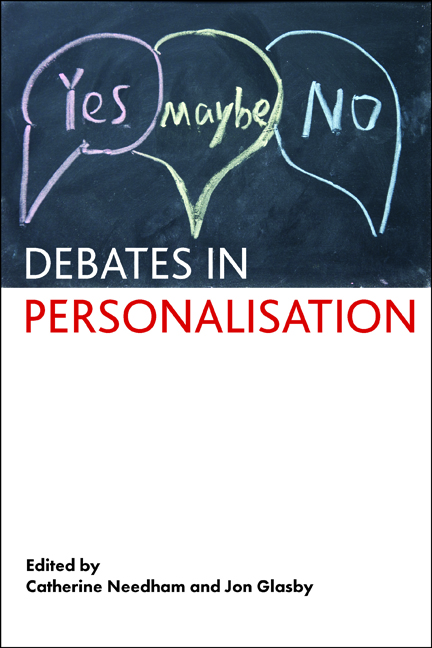Book contents
thirteen - Managing a personal health budget: Malcolm's story(book)
Published online by Cambridge University Press: 04 March 2022
Summary
Since receiving a personal health budget in 2009, my dad's medication has been reduced by two-thirds, he now receives more consistency in his care, he no longer requires the support of a care manager or a consultant, and he now gets to choose where and when his care is provided, and by whom. It isn't so much that receiving a personal health budget has changed our lives; it is more that it has helped to restore them.
In hindsight my dad, Malcolm, first began suffering with dementia in 2005. All of his life he had been an outgoing, hard-working and thoughtful individual. Yet suddenly, elements of his personality started disappearing.
It was leading up to his retirement that he first started displaying what, on reflection, were the first symptoms of right frontal lobe dementia. Malcolm had always been a very confident individual, doing various public speaking gigs and socialising at every opportunity. He had always taken life in his stride, yet in the November of 2005 he started suffering with panic attacks.
Unusual as it was, nothing much was thought of it at first. His life was about to undergo a massive transformation brought about by his retirement. He had worked full-time since the age of 16 and now, at 60 years of age, he was ultimately taking a step into the unknown. It was only natural that he should feel slightly uneasy about it.
Standing at six feet tall, 13 stone in weight and at only 60 years of age, Malcolm didn't represent what one may consider to be your typically old and frail dementia patient. Yet in the January of 2006, his weight suddenly dropped to just 11 stone in a matter of weeks.
Despite his weight gradually returning, we noticed a huge loss in confidence and change in his demeanour. The outgoing, approachable demeanour he had always displayed had gone and he now appeared somewhat insular. Suddenly, he looked terrified of talking to people.
Such symptoms continued over the following months, yet it was difficult to identify something tangible to take to the doctors to evidence our concerns. But by the summer of 2006, we were at least acknowledging the changes as a family.
- Type
- Chapter
- Information
- Debates in Personalisation , pp. 119 - 124Publisher: Bristol University PressPrint publication year: 2014

